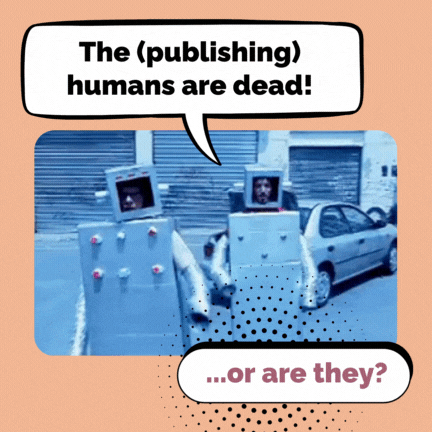Apocalypse Maybe?
Caution: Millennial whining ahead! Clearly, I didn’t eat my avocado toast today, but I swear there’s a publishing-related point to this, so bear with me. 😅
On TikTok, it’s popular for millennials, my much-maligned generation, to complain about the litany of bad breaks we’ve endured:
The Columbine High School massacre and 9/11 permanently damaged our sense of safety and security during the vulnerable years of our adolescence.
Believing in the more stable financial future a college degree promised, we took on massive student debt and promptly graduated into the Great Recession.
Then, before the oldest of us could turn 40, we found ourselves facing yet another recession thanks to the devastating COVID-19 pandemic.
We’ve experienced slower economic growth since entering the workforce than any other generation in US history, despite also being the most educated, inspiring media outlets like The Washington Post to dub us “The Unluckiest Generation.” How’s that for a participation trophy?
Along with the rest of you, we’re also staring down the collective barrel of inflation, worldwide political unrest, climate change, and a potential second Trump presidency (dear God, please no). I’ve all but given up on the traditional hallmarks of adulthood. Homeownership? I live in the Bay Area, where the median price of an existing single-family house is $1.25 million—never going to happen. Kids? No, thanks. They’re just as expensive. Retirement? Don’t make me laugh.
And now publishing, the industry that pays for my particularly millennial-adult lifestyle (a one-bedroom apartment, fourteen houseplants, three pet rats, and a penchant for binge-drinking with my friends on the weekends), is under threat thanks to AI.
Why yes, an early-2000s reference in GIF format was the most millennial-ass image I could have chosen for this.
I say all this not to complain (although writing those last three paragraphs felt pretty cathartic), but to set the stage for my thoughts on this issue: After a lifetime of kind of feeling like the world was going to end, I’m actually not that worried—annoyed and concerned, but not stressed.
That’s because despite all our bad luck, I strongly suspect the pervasive doom-and-gloom I’ve experienced is not all that unique to my generation. I think of my grandparents living through the Great Depression and World War II. I think of my mom living through the Vietnam War and my dad being drafted into it. I think of Gen X, my effortlessly cool big brothers and sisters, surviving their latchkey childhoods during the AIDS crisis and the end of the Cold War. And I think of Gen Z and Gen Alpha, whose futures seem to be in such peril.
Similarly, each generation’s latest technology has been met with intense fear and scrutiny: Copyists responsible for reproducing books by hand saw the printing press as a threat to their livelihood, and religious and philosophical leaders thought “the horrible mass of books… might lead to a fall back into barbarism,” as the polymath Gottfried Wilhelm Leibniz said. Some critics feared that the telephone would cause a breakdown in social interaction and undermine face-to-face communication. (They’re still saying that about modern mobile phones and the internet.) When radio programming reigned supreme, parents worried that it would be psychologically harmful to their children; they had the same fears about television and video games.
This brings me back around to AI and publishing: AI is just The Next Scary Thing. The rapid pace at which it is evolving is unprecedented, so maybe it’s fair to say that it’s The Scariest Thing So Far, but its integration into and influence over our lives is unavoidable. We can either accept that and try to work with it or jump into a bunker with a doomsday prepper. I choose the former.
What’s important is how we work with AI, and what I am worried about is aspiring authors falling for the too-good-to-be-true promises I keep seeing in my social media feeds about being able to “write a book in days, without even writing it!” (See my Instagram reel from last week.) When I was a weird, lonely kid, books offered me a vital sense of connection to other people. For hours at a time, I could explore feelings of hope, adventure, inspiration, loss, and grief in my weekly library haul without ever setting foot outside. I think any great book—whether fiction or nonfiction—needs to be able to do that for you. And at least for now, completely AI-generated content just can’t.
Notice I said the word completely. AI can be a great tool for things like workshopping ideas, refining an outline, brainstorming titles, and more. I’m already using it for that stuff, and it has made my job a little easier (hooray!) But when Eva and I are helping authors excavate the core message of their project and find their audience, the human element is essential. I hope that never changes, because it’s what has always made my job so special and gratifying: connecting with authors and colleagues like you. So thanks for reading this. ❤️
PS: If you’ve got a book idea you want our very human, in-person help developing, check out our Big Leap retreat scheduled for this fall and consider applying. I’d love to meet you in person.
PPS: I think this is the part in those AI-related articles where I’m supposed to say something like, “Did you know I used AI to write this?!” But guess what? No robots were used in the making of this blog post. 😎

